- Учителю
- Урок английского языка по теме: «Экологические проблемы»
Урок английского языка по теме: «Экологические проблемы»
</<font face="Times New Roman, serif">Урок по теме: «Экологические проблемы»
Автор работы: Романова Нелли Викторовна, учитель английского языка, Средняя школа № 82 город Ульяновск.
Описание работы: Данный урок будет полезен учителям английского языка для проведения в 8 классе, учебник М.З. Биболетова «Enjoy English». Работа позволяет повторить и обобщить изученный материал по теме «Экологические проблемы».
Цели и задачи:
Образовательные: обобщение изученного материала по теме «Экологические проблемы»; совершенствование навыков аудирования, чтения и говорения; совершенствование лексических навыков.
Развивающие: повышение уровня мотивации к изучению английского языка; развитие памяти, воображения и логического мышления.
Воспитательные: способствовать развитию чувства ответственности и бережного отношения к природе; формировать умение работать в коллективе.
Оборудование: картинки с изображением видов природы; презентация; карточки с названиями экологических проблем.
Stages
-
Introduction.
-
Warming-up.
Pupils look at the pictures and discuss the following questions:
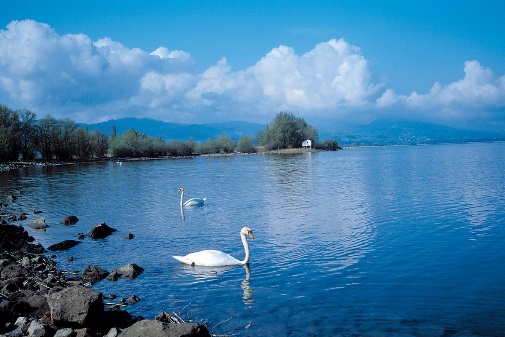
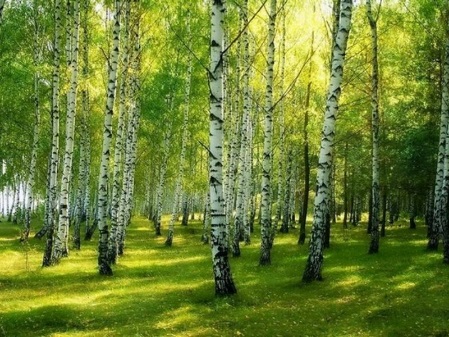

-
What can you see in these pictures? (a forest, a lake, a seaside)
-
Is the nature beautiful?
-
Do you like to go for a walk in the forest?
-
Do you like to swim in a lake?
-
Would you like to spend holidays at the seaside?
-
Do you like these places? Why?
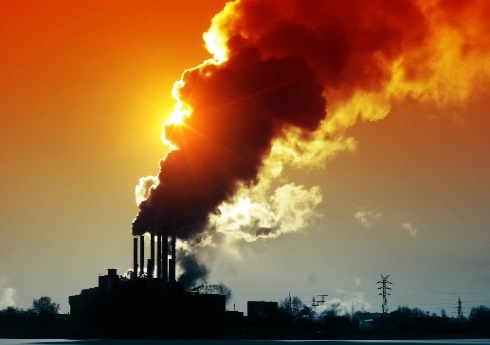
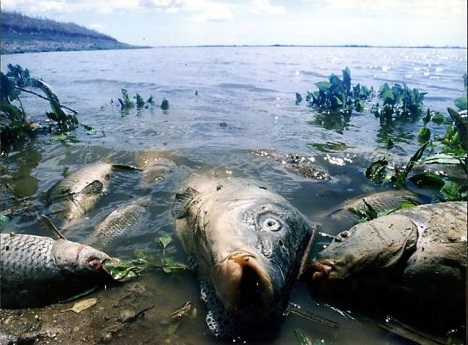
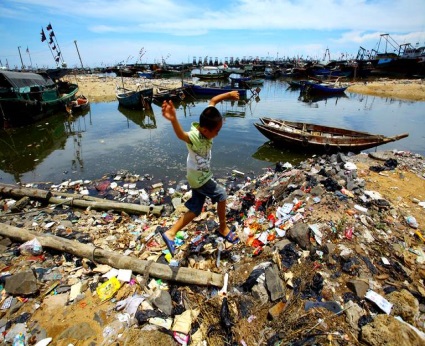
-
Would you like to spend holidays or go for a walk in these places? Why?
-
What does the word "ecology" mean?
(Ecology is a science about nature and about relations of man with it. The word "ecology" came from the Greek which means "home". This idea of "home"
includes the whole planet of ours.)
-
Phonetic exercises.
Pupils read the transcription of the following words and translate them into Russian:Air pollution
Be prohibited
Water pollution
Recyclable
The pollution of the environment
Natural resources
To protect from pollution
Destruction
To protect the environment
Littering
Chemical waste
Save energy
Waste paper
Acid rain
-
Lexical activities.
Pupils choose the proper words for the following definitions.
Keys:1n, 2m, 3l, 4k, 5j. 6i, 7h, 8g, 9f, 10e,11d, 12c, 13b,
14a.
Pupils translate from English into Russian.
-
It takes 500,000 trees just to make the newspapers we read every Sunday.
-
In England since the Second World War 22 wild flower species have disappeared for ever.
-
If you throw an aluminum can on the ground, it will still litter the Earth up to 500 years later.
-
If you throw a glass bottle on the ground, it will still litter the Earth forever.
-
One ton of rubbish is thrown away by the average British family every year.
-
In the past 30 years the tuna-fishing industry has killed more than 6 million dolphins and put the dolphin population at risk and onto the endangered species list.
Pupils fill in the blanks with an appropriate word from the box, using each word once only. There are five extra words.
-
… is a big problem in our cities.
-
People can … rubbish instead of throwing it away.
-
… is very dangerous for people, animals and birds.
-
Many species of animals are … .
-
It is necessary to … wild animals.
-
Greenpeace is an … that fights to protect the environment.
-
Many people are concerned about the … today.
-
The seas and rivers are in … .
-
People need wood and paper so they … forests.
-
Cars are the world's biggest air … .
Keys:1) littering; 2) recycle; 3) pollution; 4) disappearing; 5) help; 6) organization; 7) ecology; 8) danger; 9) cut down; 10) polluters
Pupils match the words on the left and the words on the right.
Keys: 1c, 2a, 3f, 4d, 5b, 6e, 7h, 8g.
-
Reading.
Pupils read the texts and name ecological problems mentioned in the texts.
Text 1. Thousands of fish die every year because of the illegal dumping in rivers by factories. Investigations are often carried out to discover who is responsible for the ecological disasters, but even when the offenders are found the punishment to this kind of behavior is not as severe as it should be.
Text 2. In big cities curs, buses and factories have polluted the air with carbon dioxide. It is also comes from burning coal and wood. This formed a blanket around the Earth. The heat from the Sun cannot escape and so the temperature is rising (the "greenhouse effect"). This means that the level of the sea is rising and the climate is changing.
Text 3. It is no exaggeration to say that the world has become a global village. Modern methods of communication have made the world much smaller and the problems we face such as pollution are not restricted to one country. The distraction of rainforests in Brazil is everyone's problem and the starvation which is common in many African countries is a challenge for Europe too. The extinction of rare species is a tragedy for the planet as a whole.
Text 4. Litter is garbage - like food, paper and cans - on the ground or in the street. Where many people live together litter is a problem. People don't always put garbage in a garbage can. It is easier to drop a paper than to find a garbage can for it. But litter is ugly. It makes the city look dirty, and spoils the view. Litter is a health problem too. Food and garbage bring animals which sometimes carry diseases.
Text 5. In the period since the 17th century to 1914 Russia lost 70 mln hectars of its forests. Forests are constantly cut out. Scientists believe that every year the Earth loses 1% of its forests. If they are destroyed at the same rate as they are being destroyed now, 60 thousand species of plants will disappear. Besides, forests produce oxygen, and their destruction can result in decreasing oxygen in atmosphere.
Text 6. Thanks to the Internet, we are now living in a global village. We have more information about other countries than ever before. We know as much about the situation in the USA as in Russia. Pollution which is produced in one country will affect other countries, too. For example, nuclear power is not dangerous only for one country but is an international problem. If we do not take actions soon. The possibility of a nuclear disaster is very real. We should all recycle our rubbish - not hope "green" people will do it.
Pupils answer the questions:
-
Why is the problem of protecting our nature so important now?
-
What is the air polluted by?
-
Are nuclear power stations dangerous?
-
What do know about the Chernobyl disaster?
-
Are rivers polluted?
-
Can you see pollution at the seaside?
-
What is happening to the sea animals?
-
Why have many species of birds and animals disappeared?
-
Why do the people cut the trees down?
-
Why is it so important to save the forests?
-
Is litter a problem in your city?
How long do you think litter last? Circle the correct answer.LITTER LASTS

![]()




![]()
-
Traffic ticket
-
2-4 weeks
-
3 months
-
a year
-
banana peel
-
2 months
-
6 months
-
15 days
-
Wool sock
-
6 months
-
1 year
-
5 years
-
Wooden stake
-
1 year
-
4 years
-
13 years
-
Painted wooden stick
-
1 year
-
5 years
-
13 years
-
Wax paper cup
-
1 year
-
3 years
-
5 years
-
Tin cans
-
50 years
-
100 years
-
25 years
-
Aluminum cans
-
500 years
-
never
-
75 years
-
Plastic containers
-
Up to 500 years
-
Up to 100 years
-
Up to 200 years
-
Glass bottle
-
100 years
-
Up to 500 years
-
never
Check your answers.
Key: 1a) , 2b), 3b), 4b), 5c), 6b), 7b), 8a), 9a), 10c).
-
Speaking.
Teacher: With the development of our civilization we have become dangerous to the planet and to ourselves. What must we do not to find ourselves in a dirty desert in the near future? Some scientists are pessimistic about our problems. They suppose that we have already reached the point of no return. Others are more optimistic and believe that our ecological problems are solvable because more and more people begin to understand how dangerous they are. In many countries environmental protection agencies and research centers are set up. Such organizations as "Green Peace" and "Friends of the Earth" try to put pressure upon those governments that do not care for ecology in their countries. And scientists are looking for ways to make factories and cars run cleaner.
The future of our planet depends on each of us. Everyone should contribute to improving the ecological situation in their country. What should we do ourselves to save the Earth? The first group tells what we should do to protect the Earth, the second group tells what we shouldn't do, the third group tells what we can recycle, reuse, reduce.
Example:We should
-
Save water. Turn off taps when you don't need water any more.
-
Save electricity. Turn off the lights when you leave the room. Turn off the TV when you are not watching.
-
Plant trees and flowers.
-
Feed birds and animals in winter.
-
Help homeless animals.
-
Avoid buying packaged goods.
-
Walk or cycle whenever possible.
-
Help to clean up your local environment.
-
Put garbage in the garbage can.
-
Recycle things that can be recycled.

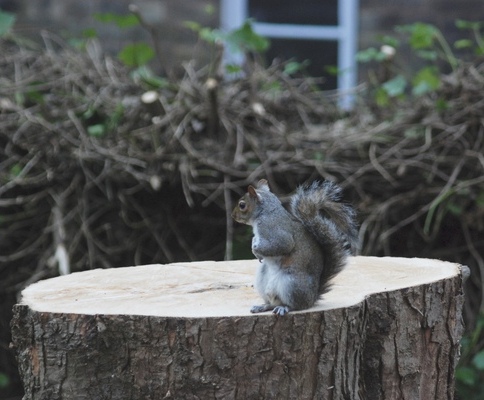
We should not
-
Leave litter in the forest.
-
Throw litter in the river.
-
Throw away plastic bottles.
-
Cut down trees.
-
Disturb birds.
-
Kill animals.
-
Pick up rare animals.
-
Leave a fire in the forest.
-
Waste paper.
We can recycle newspapers, metal, rubber, glass bottles, aluminum cans and plastic containers.
We can reuse glass and plastic bottles.
We can reduce using electricity, using water.
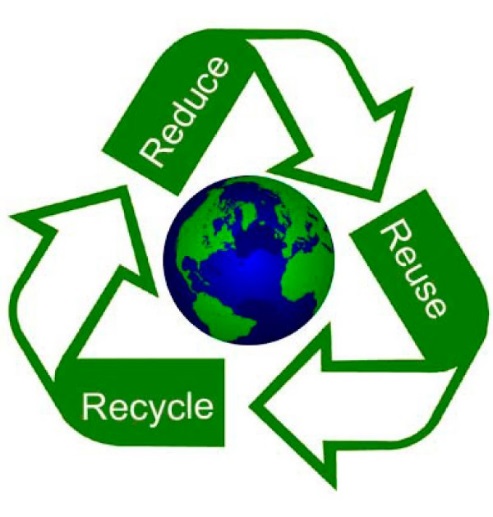
-
Listening.
Pupils work in groups, they listen to the text and fill in the table. The first group tells about the national parks in Great Britain, the second - about the national parks in the USA, the third group tells about Yellowstone.
The national parks
America was the first country in starting up "National Parks",
beginning with Yellowstone in 1872. In England and Wales the first
national park was founded only in 1949. Now there are ten c and
Wales which cover 9% of the land area. 90 million visitors come to
national parks every year. The first aim of national parks is to
protect the countryside; the second aim is to allow people to enjoy
the countryside as home to trees, flowers, animals and birds.
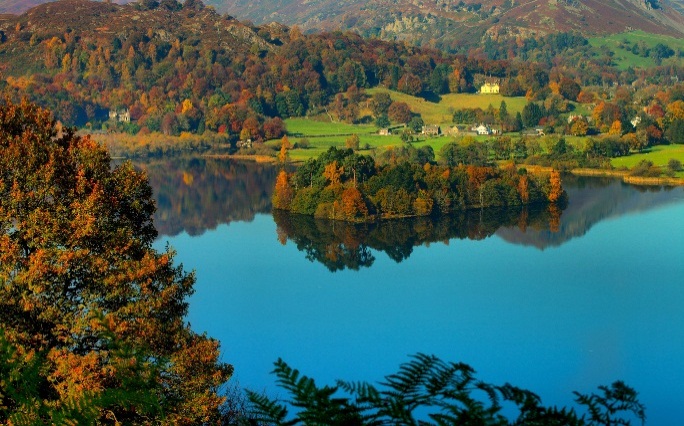
The Lake District in the northwest of England is the largest
national park. It is popular with walkers, cyclists, and people who
go boating. It is one of the most beautiful and attractive places.
It has Windermere, the longest lake in England, and Scafell. The
highest mountain in England.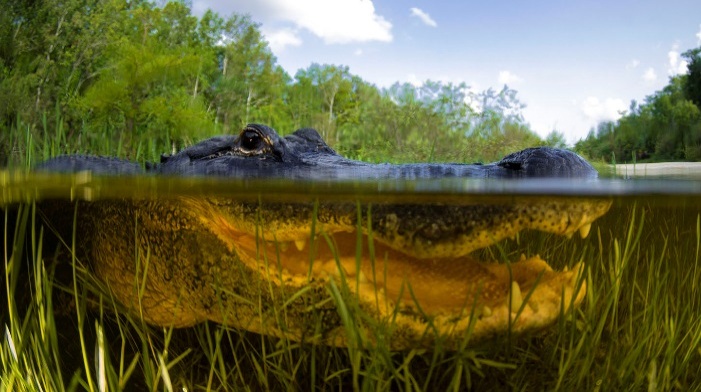
The USA is a larger country than Britain that is why it has more
regions to protect. There are 58 national parks in the USA
nowadays. The Great Smoky Mountains, the Grand Canyon and
Yellowstone are the most popular national parks. The Everglades,
Florida, is one of the most interesting places. About one million
people visit it every year. Some time ago hunters killed alligators
for their skin and birds for their meat there. That was awful. If
you visit the Everglades now, you can see a moving log. It is
probably an alligator. Be careful. It can be dangerous. The
Everglades is protected as a national park. Its unique ecology is
enjoyed by naturalists and tourists. 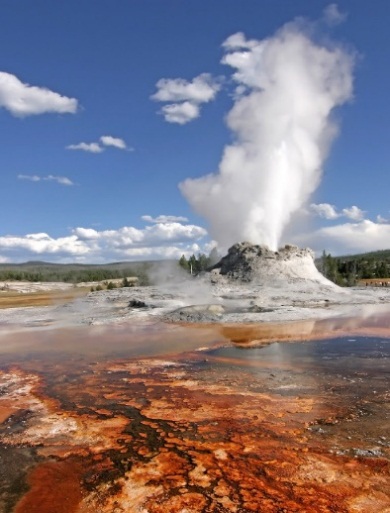
Yellowstone is the world's oldest and largest park. It covers parts of the states of Wyoming, Montana and Idaho. Yellowstone is famous for its geysers. There are about 70 geysers in the park. People go to a national park to enjoy nature. Although two- and- a-half million people visit this beautiful park each year, the land is still unchanged - still a wilderness.
-
The conclusion of the lesson.
Список использованной литературы:
-
И.Ю. Баканова «600 устных тем по английскому языку», М.»Дрофа», 2000,
-
Т.Б. Клементьева, Д. Шэннон «Счастливый английский», Обнинск «Титул», 1996,
-
Е.С. Музланова, Е.И. Кисунько «Тесты по английскому языку» М., Астрель, 2004,
-
Е.Б. Полякова, Г.П. Раббот «English for teenagers» М., 1999.